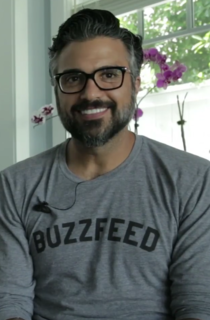A Quote by Arundhati Roy
Talk loud enough about human rights and it gives the impression of democracy at work, justice at work. There was a time when the United States waged war to topple democracies, because back then democracy was a threat to the Free Market. Countries were nationalising their resources, protecting their markets.... So then, real democracies were being toppled. They were toppled in Iran, they were toppled all across Latin America, Chile.
Related Quotes
The moral case is, people say, "Oh they're not ready for democracy," but that's something someone who lives in a democracy would say about someone who doesn't live in a democracy. Well, if democracy is the highest form of human potential, then it can't be true for us and not for them. But, the practical case is democracies don't invade their neighbors. Democracies don't traffic in child soldiers. Democracies don't harbor terrorists as a state policy. So there's a reason to have more democratic states.
Now we're in a situation where democracy has been taken into the workshop and fixed, remodeled to be market-friendly. So now the United States is fighting wars to instal democracies. First it was topple them, now it's instal them, right? And this whole rise of corporate-funded NGOs in the modern world, this notion of CSR, corporate social responsibility - it's all part of a New Managed Democracy. In that sense, it's all part of the same machine.
There are so many issues that impact women. When we talk about prison reform, for example, women were [once] sterilized in women's prisons. When they were giving birth, they were asked to sign paperwork but they weren't even completely conscious of what they were signing. That sounds like something that would never happen in America, but it was happening, not just in America, but in [California], one of the most progressive states in the United States.
One of the greatest disasters that happened to modern civilization was for democracy to inscribe "liberty" on its banners instead of "justice." Because "liberty" was considered the ideal it was not long until some men interpreted it as meaning "freedom from justice"; then when religion and decent government attempted to bring them back to justice, organized into "freedom groups" they protested that their constitutional and natural rights were being violated.
There are degrees of incompatibility, and there are more factors relevant to upholding democracy and human rights than the operation of neoliberal markets. Perhaps this point can be initially made by reference to the decline of democracy and the erosion of human rights within the United States since the 9/11 attacks.
We need a more authoritative world...What's the alternative to democracy? There isn't one. But even the best democracies agree that when a major war approaches, democracy must be put on hold for the time being. I have a feeling that climate change may be an issue as severe as war. It may be necessary to put democracy on hold for a while.
Strong countries and strong presidents talk to their adversaries. That's what Kennedy did with Khrushchev. That's what Reagan did with Gorbachev. That's what Nixon did with Mao. I mean think about it. Iran, Cuba, Venezuela - these countries are tiny compared to the Soviet Union. They don't pose a serious threat to us the way the Soviet Union posed a threat to us. And yet we were willing to talk to the Soviet Union at the time when they were saying we're going to wipe you off the planet.





































